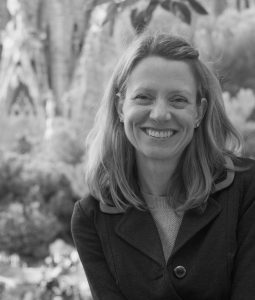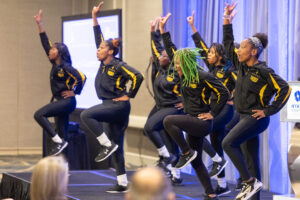This post is from Quantifying Gold: Humanism’s Impact on Leaders in Medicine. This new series will highlight the achievements of medical school leaders in GHHS and identify key characteristics in humanism that have led to leadership, success, and innovation.

Amy Fleming, M.D., Associate Dean for Medical Student Affairs, Vanderbilt University School of Medicine
.
Dr. Fleming has been a clinician-educator in the Department of Pediatrics since 2007. She is a founding Vanderbilt University School of Medicine College Mentor; she served for five years as the Pediatric Clerkship Director and as a Master Clinical Teacher. Over the past few years, Dr. Fleming has had a prominent role in the implementation of Curriculum 2.0 – Vanderbilt’s new and innovative medical education program. In 2014, she was appointed Associate Dean for Medical Student affairs where she now leads the learning portfolio process and oversees the Colleges (VUSM’s learning communities), the Vanderbilt Student Wellness Program and Vanderbilt Careers in Medicine. VUSM students have recognized Dr. Fleming’s role as teacher and mentor with several awards including the 2011 Shovel Award,Vanderbilt’s highest teaching honor. Dr. Fleming has held leadership roles in a number of national medical education organizations and is the current Chair of the Learning Communities Institute. In 2015, she received the Leonard Tow Humanism in Medicine Award, presented by the Arnold P. Gold Foundation.
Why is Gold important to you?
I was so honored when I received the Leonard Tow Humanism in Medicine Award from my students. Being a part of the Gold Humanism Honor Society is especially meaningful to me because the tenets of Gold represent who I want to be as a pediatrician, as an educator, as a mentor and as a person. I find great joy in the incredible diversity of humanity. I love people. And, to be acknowledged for compassion, empathy and advocacy was the highest honor I can imagine.
How has humanism contributed to your success as a physician and a leader?
I learned about the power and importance of empathic and humanistic patient care by watching my mentors as they worked with patients. I think it is a combination of my positive attitude and the fact that I simply love being around people that has helped me be successful in medicine and medical education. When you find joy in your work and in learning, you can inspire those around you.
What humanistic aspects of your career define you, even outside of the world of medicine?
One of the greatest complements I can receive from a student or patient is “I know you really care about me.” When I hear this I know I have listened well, shown respect, tried to understand another perspective, demonstrated compassion, and gained trust.
Advice to those on how they build their own humanism:
Find something you love to do in life and put your whole heart into that passion. Take time to listen to people’s stories. Slow down a bit; we often rush past moments that seem like interruptions…they can turn into the most important moment of the day.
Pick a word that best describes you.
Genuine.
Interview by: Ishan Asokan, M.D. Candidate, Vanderbilt University School of Medicine ’17 and Member, GHHS Advisory Council
